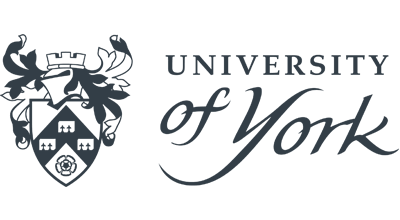Date published: 31/10/17

Audit provides roadmap to grow regional strength of med tech
The recent Science and Innovation Audit for the Leeds City Region identifies the regional strengths of the med tech sector, but also key challenges to be addressed if its potential for economic growth is to be realised, argues Professor John Fisher.
Where to begin?
When we began the Science and Innovation Audit for the Leeds City Region, we didn’t start with a blank page. The audits, commissioned by the Department of Business, Energy and Industrial Strategy (BEIS), were designed to identify where science and research within a region aligned with industry strengths, to provide an opportunity for growth. In the Leeds City Region, we had a head start. We knew the strength of medical technology research within the region’s universities was mirrored by a strength in med tech companies, both large and small. We knew the region has numerous NHS organisations and a large patient population. The audit provided us with further evidence to confirm the region’s research excellence, concentration of med tech companies, and wider health innovation ecosystem.
This meant we could move on to ask the next question: how can these strengths be leveraged to benefit the region’s economy through faster growth, higher productivity and more exports – and what steps are needed to make the most of this potential?
Given the predicted growth in global med tech markets, the high-value nature of the sector and its relationship to convergent and digital technologies, investment in medical technologies can provide the opportunity to address: growth, productivity and exports.
The Leeds City Region (LCR) took part in the second wave of science innovation audits (SIA), which followed publication of the Government’s Industrial Strategy. The strategy acknowledges the benefits of regional links between research and industry to increase productivity and exports, and helped us to ensure we were asking the right questions.
The challenges ahead
Gathering evidence and analysing data wasn’t just an exercise to make us feel good about med tech in the Leeds City Region: to realise the potential for the sector, more needs to be done, and the audit was just the first step in a much longer journey.
Let’s be honest here: the picture isn’t all rosy. There are substantial challenges that the region will need to address if we are to reap the benefits that the med tech sector offers. Some of these relate directly to the region’s own capacity, some are national challenges, and some are linked to the changing nature of the sector globally. It was important for us to take a global view, as we felt that the opportunities for the UK were necessarily linked – and potentially limited by – the predicted growth in the global market.
Some of the action points in the audit are based on this global analysis, in particular that digital technology is already – and will continue to – have a substantial impact on the sector. Digital technology is enabling the convergence of multiple technologies, and this is changing the market as well as powering its growth. If the med tech sector in the Leeds City Region is to take advantage of this, it also has to transform, and this will need a joined-up, strategic focus from all the stakeholders.
The region has a fifth of the UK’s digital health jobs – partly through the presence of NHS Digital in Leeds – and this is an asset we can draw on. But the region also has a lower proportion of highly skilled and qualified people than the national average. Ensuring we have the digital and med tech skills we need now and in the future is one of the key challenges the region faces.
The audit identifies other issues for the region: productivity levels are lower than the national average and, like the country as a whole, there is underinvestment in research, development and innovation, particularly by the private sector.
Another challenge that is UK-wide, but can be addressed at a regional level, is that of clinical evaluation of medical technologies. At present, the strategic priorities of the NHS are not well aligned to facilitate economic growth, and there is no easy route for companies to gather the evidence they need on new technologies to enable them to enter the global marketplace.
The audit has enabled us to identify opportunities and challenges, current and future, and propose ways to address them.
Moving forward: what next?
Our response takes the form of five propositions for the region to consider: a clinical evaluation hub, a med tech skills academy, a med tech innovation hub, grow-on space for business and funding for infrastructure, and a med tech sector council to provide leadership.
We are now building leadership groups from across the sector to work on these propositions, to develop concrete proposals around them and identify how they could be funded. This is not something that any one element of the sector can deliver alone, be it the universities, industry, clinicians or the public sector.
Medical technologies is a far more complex sector than many industries, involving multiple stakeholders with differing priorities. Our challenge now is to bring these together to take the outcomes of the audit forward, and ensure the enormous potential of med tech to deliver prosperity in the region becomes a reality.
Professor John Fisher, University of Leeds







